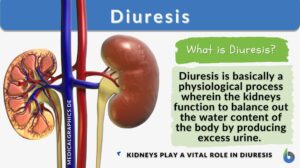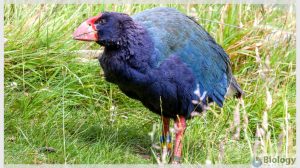Search Results for: cold
An introduction to Homeostasis
Researched and Written by Jonjo Minns Submitted to biologyonline.com on February 25, 2009. Published in biologyonline.com... Read More
Sphenopalatine ganglioneuralgia
Definition noun The medical or scientific term for brain freeze Supplement The sphenopalatine ganglioneuralgia is a type of... Read More
Abiotic factor
An abiotic factor is a non-living element of the environment that influences the way organisms and ecosystems function. Some... Read More
Growth and Plant Hormones
Growth All living organisms begin in the same form: as a single cell. That cell will divide and the resulting cells will... Read More
Adipose tissue
Adipose Tissue Definition Adipose tissue, a specialized variety of connective tissue, is composed of lipid-rich cells known... Read More
Eubacteria
Eubacteria are prokaryotic microorganisms consisting of a single cell lacking a nucleus and containing DNA is a single... Read More
Psychrophile
Definition noun, plural: psychrophiles An organism that thrives in cold temperatures, i.e. ranging from −20 °C to +10... Read More
Regulation of Organic Metabolism, Growth and Energy Balance
Organic Metabolism Events of Absorptive and Post-absorptive States. The absorptive state is the period during which... Read More
Homeostasis
Homeostasis is the tendency not to stray from the range of favorable or ideal internal conditions. Such conditions must be... Read More
Filtration
Filtration Definition What is filtration? Filtration is separating a solid from a fluid through a porous material that... Read More
Chromatophore
Definition noun, plural: chromatophores A pigment-containing cell or light-reflecting structure, especially found in fish,... Read More
Vascular plants
Definition of Vascular plants The term 'vascular' is derived from the Latin word vāsculum, vās, meaning "a container and... Read More
Melanophore
Definition noun, plural: melanophores A type of pigment cell that, in particular, produce and store... Read More
Takahē (Porphyrio hochstetteri)
By: Maria Victoria Gonzaga Previously, we've seen the different animals endemic to New Zealand. Due to the... Read More
Thermotropism
Definition noun, plural: photoropisms Movement or growth response of a cell or an organism to heat or changes in temperature... Read More
Proteoglycan
What are proteoglycans? Proteoglycans are primarily a type of polysaccharide. Structurally, proteoglycans are... Read More
Characteristic
Characteristics Definition We can define characteristics as qualities or features that describe the distinctive nature or... Read More
Kelp Forest
Definition noun, The most biologically productive habitat found in the cold rich nutrient marine ecosystem. Supplement The... Read More
Psychrometer
Definition noun, plural: psychrometers A simple form of hygrometer with two thermometer bulbs in which one is kept dry and... Read More
Genetic diversity
Genetic Diversity Definition Each species is composed of individuals with their own set of genes. A gene is the inheritance... Read More
Thermophile
Thermophiles Definition What are thermophiles? Let us first understand the literal meaning of the word ‘thermophile’.... Read More
Kingdom Animalia
Kingdom Animalia Definition Each person can say that they know of or can name at least one animal. However, do people know... Read More
Spermiogenesis
Spermiogenesis Definition Spermiogenesis is the stage of spermatogenesis wherein the spermatids differentiate into mature... Read More
Thermoanesthesia
thermoanesthesia Loss of the temperature sense or of the ability to distinguish between heat and cold; insensibility to heat... Read More
Aestivation
Definition noun (1) (botany) The arrangement of petals (as well as sepals) within a flower bud that is yet to open. (2)... Read More
Primary productivity
Planet Earth is home to different types of life forms ranging from microscopic bacteria to giant whales and elephants. To... Read More
Homeostatic equilibrium
Definition noun (1) The tendency of an organism or a cell to regulate its internal conditions, usually by a system of... Read More
Deciduous forest
Deciduous Forest Definition A deciduous forest is a type of forest dominated by trees that lose their foliage at the end of... Read More


























